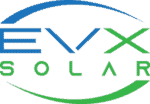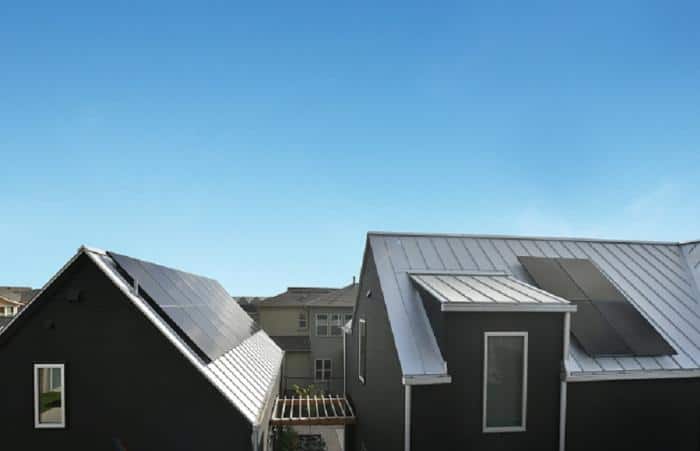With the expected useful life of commercial solar systems ranging from 25 to 40 years , choosing the right solution to invest in at the outset is incredibly important. But which of the many solar power companies should you consider? The answer may be easier than you think.
Solar is a long-term investment. Think about it—what other purchases do you expect to still be functioning for your company through the middle of this century and possibly beyond? IT? Office machines? Fleet vehicles? Nope, nope and nope.
Because of this, you should begin your search by focusing on the panels, racking, cabling and other commercial solar system components that will be on your site 24/7, for a quarter of a century plus. In other words, the best strategy for choosing a solar company is to start with the technology.
DEALERS VS. MANUFACTURERS
If you do an internet search for “commercial solar companies in my area,” you will most likely get a list of solar panel installation companies. That’s very much like searching for “car dealerships in my area” when you’re shopping for a new car. Which probably isn’t how you’d start your search, is it? Most people start by understanding the type of vehicle that will suit their needs, and then they narrow it down to specific makes and models based on engineering, reliability, performance, aesthetics, etc. Then, finally, they look for a reputable dealership that sells that particular vehicle. You wouldn’t step onto a car dealer’s lot and say, “Sell me whatever you want.”
It should be the same with solar. Start by understanding the different solar technologies available and which solar panel manufacturer makes the best panels and systems to suit your needs. Then find a commercial solar dealer in your area that sells and installs the particular tech you’re looking for and has a great reputation for service.
SOLAR PANEL TECHNOLOGY
There are several important criteria upon which to evaluate solar panel and PV (photovoltaic) cell technology. The top two considerations are usually efficiency and reliability. Solar panel efficiency refers to the amount of ambient light that can be converted into usable electricity. There are two ways to evaluate photovoltaic solar efficiency: you can look at solar cell efficiency or at solar panel efficiency. Solar cell efficiency is the amount of light that the individual solar cell converts to electricity. Solar cells are placed next to one another on top of a backsheet and are covered by glass to make up a solar panel. The more efficient your solar technology is, the more energy it can produce in a smaller footprint, and the more money it can save you over time.
Solar panel reliability, on the other hand, is all about time—it’s how many years your system will last, based on normal conditions. Many solar manufacturers say their products have gone through rigorous industry certifications, but just having a certification doesn’t necessarily mean it’s a high-quality product. Such certifications are for safety only they do not guarantee consistent performance over the life of the panel. Look for evidence that a manufacturer’s products perform consistently and well over time.
In addition to efficiency and reliability, you’ll want to know about solar panel durability—how it stands up to normal and extreme weather conditions and other factors that cause wear and tear. Did you know that there are impartial research organizations that rank how well solar panels stand up to impact from large hail and other common environmental challenges? For example, the Fraunhofer Center for Sustainable Energy Systems rigorously tests PV technologies under the PV Module Durability Initiative (PVDI) and publishes its rankings.
SOLAR PANEL LONGEVITY
Another major consideration is your solar panels’ expected longevity. What’s the predicted useful life cited by the solar panel manufacturer? What’s their track record for performance? Does energy production drop off gradually or rapidly over time? All solar technology suffers some performance loss over time, but quality panels can continue to produce energy at close to their original efficiency levels for many, many more years than poorly-made panels. High-quality panels may cost more up front, but you’ll get a much better payoff over time as they maintain their performance, while cheaper panels drop off steeply in the short term.
Warranties are a big tell. There will probably be separate warranties for installation and for equipment. Look to the manufacturer’s warranty to see how confidently they stand behind their products. Be wary of short-term or severely-limited warranties. Look for combined power and product warranties that run for 20 or more years and cover the entire system, not just the panels. Yes, they’re out there.
SOLAR SYSTEM INSTALLATION AND MOUNTING HARDWARE
Don’t forget the importance of mounting hardware, inverters, cabling, etc. Many commercial solar installers will use whatever hardware is available and most affordable—not necessarily hardware that was designed by the panel manufacturer to work best with those panels and to last as long as the panels do.
Moreover, if you intend to scale your system in the future as your business grows and energy needs increase, you’ll want to look for systems that are designed to accommodate this.
NOW IT’S TIME TO FIND AN INSTALLER
Once you know which manufacturers’ products will meet your requirements and needs, you’re ready to choose a solar panel installation company who sells that brand. If your business has a national footprint, includes multiple sites where you intend to install solar or has extremely high electricity demand, it is possible you will work with the manufacturer directly for your project design, procurement and construction. But small to medium-sized businesses, or those with a single site, are more likely to work with a local commercial solar equipment dealer.
Not all solar power companies sell all manufacturers’ products. Most commercial solar dealers offer choices, though, just like car dealerships do, so you’ll be in a better position if you go in already educated about exactly what you’re looking for. Get recommendations from other nearby organizations that have solar to find out about their experiences with dealers in your area.
The solar dealer may also be your installer, or they may contract out to local installers. Dealers should be well versed in local codes and permitting requirements to make sure your project moves along smoothly. Moreover, the best commercial solar dealers do not simply sell a manufacturer’s products—they are also trained by the manufacturer to design, install and maintain the solar array for the life of the system.
BE A SAVVY SOLAR SHOPPER
The takeaway here is that, as with any major investment, it makes sense to educate yourself as much as you can about the differences in solar technologies before approaching a dealer or an installer for your project. Though many commercial solar power companies are excellent guides and advisors—genuinely wanting to find the very best solution for their customers’ needs—you’ll feel much more confident and satisfied with your decisions if you have a strong idea of what you want before you begin the conversation.
This post originally appeared on the SunPower Resources Blog



